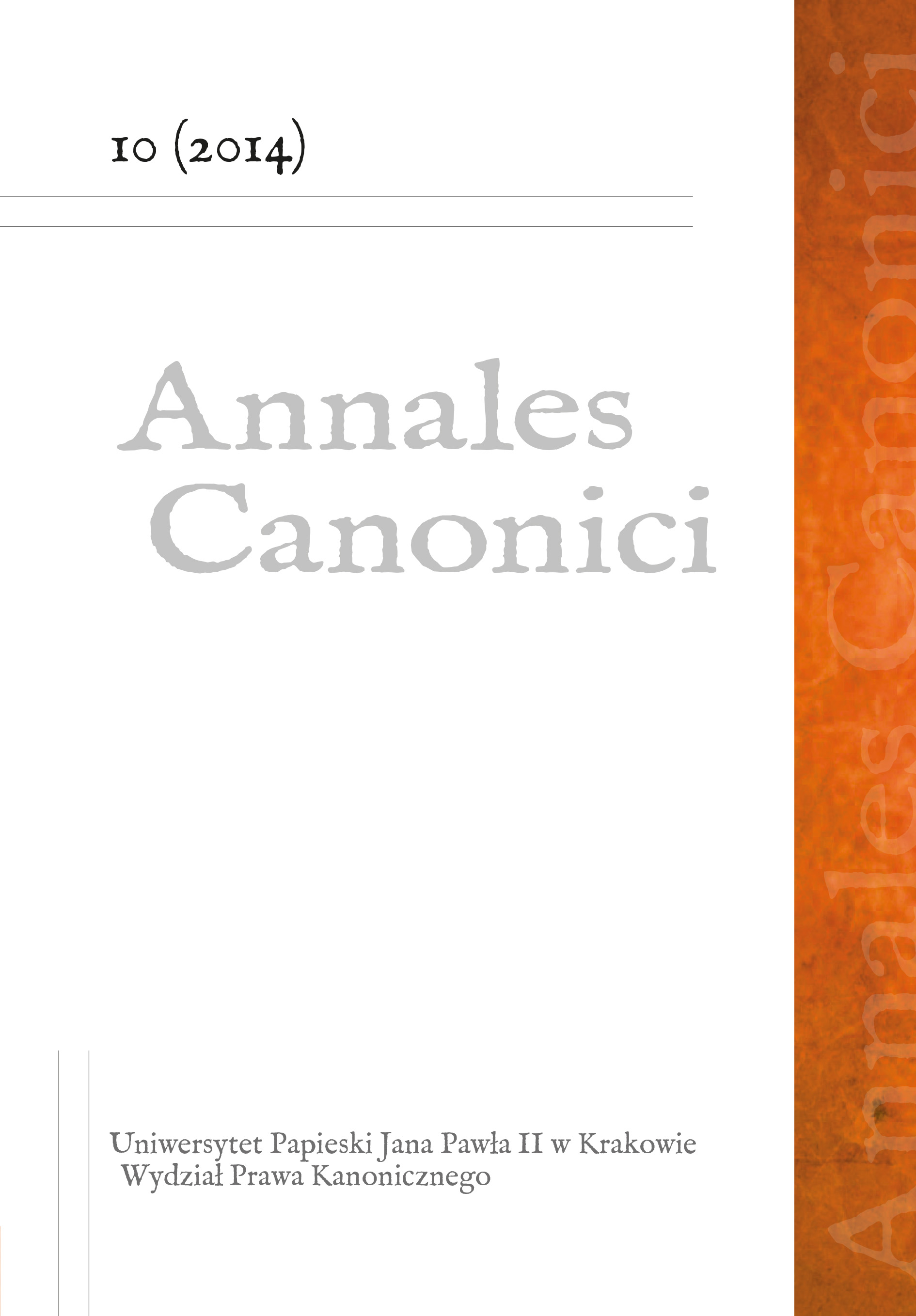È possibile risolvere la questione dell’incardinazione anomala di cui al can. 701 del CIC/83?
DOI:
https://doi.org/10.15633/acan.1936Słowa kluczowe:
cleric, dismissal, incardination, excardination, secondary incardination, lacuna legisAbstrakt
The main goal of this article is to find a constructive legal solution after incardinatio abnormis arose as a result of a legal dismissal of the member of the clerical religious Institute. By virtue of a legal dismissal decree, the punished religious-cleric looses a proper canonical status of being consecrated. The author discusses the meaning of the legal dismissal in the Code of Canon Law of 1983. Emphasis is placed on the consequences and circumstances of this act; especially in order to address the problem of incardination of a religious-cleric who was punished with a dismissal. Dimissio modo iure praescripto automatically excardinates from the religious Institute, however without any guarantee or a subjective right or faculty given to the punished cleric in order to be eligible to be incardinated to another ecclesial community according to the can. 265 CIC/83.Bibliografia
Bider M., Wydalenie fakultatywne z Instytutu zakonnego według Kodeksu Prawa Kanonicznego, Lublin 2006, p. 170.
Callejo R., La exigencia de la incardinación y las posibles acefalías, „Estudios Eclesiásticos“ 81 (2006), pp. 792–801.
De Paolis V., I ministri sacri o chierici, [in:] Il fedele cristiano. Il Codice del Vaticano II, a cura di A. Longhitano, Bologna 1989, pp. 103–173.
De Paolis V., La situazione giuridica del religioso sacerdote di voti perpetui uscito dall’Istituto per indulto o per dimissione, „Sequela Christi“ 35/II (2009), pp. 184–202.
De Paolis V., Incardinazioni anomale, [in:] Il fedele cristiano. Il Codice del Vaticano II, a cura di A. Longhitano, Bologna 1989, pp. 351–380.
Kaslyn R. J., The incardination status of the cleric dimissed from a religious institute, „Studia Canonica“ 37 (2003), pp. 99–124.
Michowicz P., La dimissione facoltativa dall’Istituto religioso secondo il Codice di Diritto Canonico del 1983. Le problematiche nell’applicazione della procedura. Theses ad Doctoratum in Utroque Iure, Roma 2013, pp. 212–215.
Pontificium Consilium de Legum Textibus, Elementi per configurare l’ambito di responsabilità canonica del Vescovo diocesano nei riguardi dei presbiteri incardinati nella propria diocesi e che esercitano nella medesima il loro ministero, „Communicationes“ 36 (2004), pp. 33–38.
Pobrania
Opublikowane
Numer
Dział
Licencja
Autorzy publikujący w czasopiśmie udzielają jego wydawcy zgody o następującej treści:
- Autor zachowuje autorskie prawa majątkowe do utworu, a jednocześnie udziela wydawcy czasopisma zgody na jego pierwszą publikację w wersji drukowanej i wersji online na licencji Creative Commons Uznanie autorstwa 4.0 Międzynarodowe oraz zgody na wykonywanie opracowań, w tym przekładów.
- Autor ma możliwość udzielania zgody niewyłącznej na opublikowanie utworu w wersji, która ukazała się w czasopiśmie (np. zamieszczenia go w repozytorium instytucjonalnym lub opublikowania w książce), wraz z informacją o jego pierwszej publikacji w czasopiśmie.
- Autor może umieścić swój utwór online (np. w repozytorium instytucjonalnym lub na swojej stronie internetowej) jeszcze przed zgłoszeniem utworu do czasopisma.

